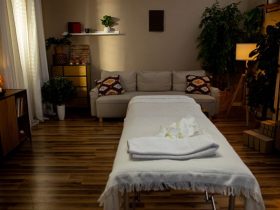Dementia brings a long list of challenges for the person living with it and the loved ones who support them. While public healthcare systems do their part, they’re often overburdened and stretched thin. That’s why many families in Singapore are turning to a dementia nursing home in Singapore that prioritises comfort, routine and respectful support.
Let’s explore how private care has quietly become a key piece in managing dementia with more focus and care.
Greater Consistency in Daily Support
One major hurdle in dementia care is unpredictability. Patients respond better to familiar routines, faces, and settings. Private care for dementia offers greater control over who provides care, allowing for regularity in daily interactions. This level of stability reduces confusion and anxiety, two common issues for people with dementia.
With a private dementia care provider, it’s more likely that the same caregiver will attend to the same patient daily. That kind of predictability builds trust, and that trust often results in smoother communication, easier redirection during episodes, and an overall calmer environment.
Personalised Environments Promote Memory Anchors
Dementia patients rely heavily on visual cues and memory anchors to make sense of their surroundings. Private care allows for custom room layouts and familiar items from home, offering subtle but powerful memory triggers.
In a dementia nursing home in Singapore that offers private care, rooms can often be personalised: photos, favourite books, even familiar pieces of furniture. These touches help orient patients and reduce the likelihood of wandering or distress.
Dedicated Time Means Less Rushed Care
It’s no secret that staff in public facilities are time-poor. By contrast, private care for dementia patients allows for a slower, more deliberate pace. Carers can take time during meals, assist with bathing without rushing, and truly listen during moments of distress or confusion.
This doesn’t just help the patient feel safer, it gives carers more time to observe changes in behaviour that might indicate a need for medical review. Catching these changes early is crucial, and rushed environments rarely allow for it.
ALSO READ: Bridging the Gap: Communicating with Loved Ones with Memory Loss
Safer Medication Management
People with dementia often have complex medication schedules. Errors in timing or dosage can lead to severe consequences: confusion, aggression, or physical health issues. Private care providers usually offer tighter oversight when it comes to managing medicines.
A dementia care provider within a smaller, more focused setting can double-check, cross-reference, and spot inconsistencies far more reliably than overworked public systems. It’s a layer of protection many families feel more confident having.
Family Involvement Isn’t Just Allowed, It’s Encouraged
In many private care for dementia patients, families are seen as partners, not visitors. They’re invited to participate in care planning, and their insights are valued, not brushed off. When families work hand in hand with caregivers, they’re better informed about the patient’s condition and can advocate more effectively.
This collaborative model of care often results in smoother transitions, reduced guilt or worry for family members, and, more importantly, a stronger support network for the person with dementia. In private care, it’s not just about care delivery, it’s about continuity and shared responsibility.
Tailored Activities for Engagement and Joy
One of the more overlooked benefits of private care is access to purposeful, engaging activities. Whether it’s art therapy, memory games, gardening, or group music sessions, these aren’t just recreational; they’re therapeutic.
In a dementia nursing home in Singapore that focuses on private care, such activities are often chosen based on a patient’s history, personality, and current cognitive level. This keeps patients stimulated and preserves a sense of purpose, no matter the stage of their condition.
Less Institutional, More Like Home
Many dementia patients struggle with the sterile and unfamiliar environment of large public institutions. A smaller-scale private setting feels less like a ward and more like a shared home. This shift in atmosphere can be a huge relief to patients and their families. Soft lighting, calm décor, and quieter spaces all make daily life less overwhelming. A dedicated dementia care provider is more likely to foster this kind of setting, making each day feel more manageable.
Private care isn’t a luxury but about becoming an essential for families seeking a more humane and attentive approach to dementia. From structured routines and medication safety to personal touches and stronger family involvement, the benefits are undeniable. Whether it’s full-time support or part of a broader care plan, private care for dementia patients opens the door to better outcomes and better days.
Contact Orange Valley to learn how their dementia care provider services can support your family.








Leave a Reply